January 22nd, 2014
Podcast: Play in new window | Download
Subscribe: Apple Podcasts | Podcast Index | | More
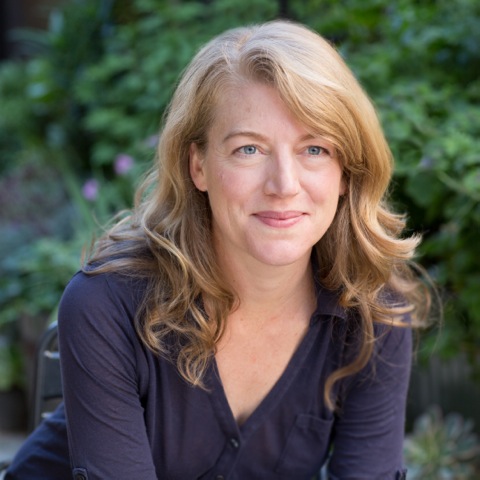
(c) Paige Green
I’m so pleased to introduce listeners to Baylor Chapman, creator and owner of Lila B. Design, a San Francisco-based floral and plant studio. Baylor’s story is well documented in The 50 Mile Bouquet and in many newspaper, magazine and blog articles.
I first met Baylor in the fall of 2010, on a trip to SF where I was scheduled to give a lecture for the Garden Conservancy.
Serendipitously, Susan Morrison, a friend who I’d known through the Garden Writers Association, learned I was coming to her backyard and called to say, “You need to meet my friend Baylor when you’re in town. She’s into locally-grown flowers just like you are.”
That led to a wonderful visit to tour Baylor’s former “loading dock” studio in San Francisco’s Mission District. Susan and Rebecca Sweet, another fellow garden designer and blogger, met me at Baylor’s. The three of us had lots of fun drooling over Baylor’s floral creations and learning more about her design philosophy based on seasonal and locally-grown floral elements. Here’s a blog post about that adventure.
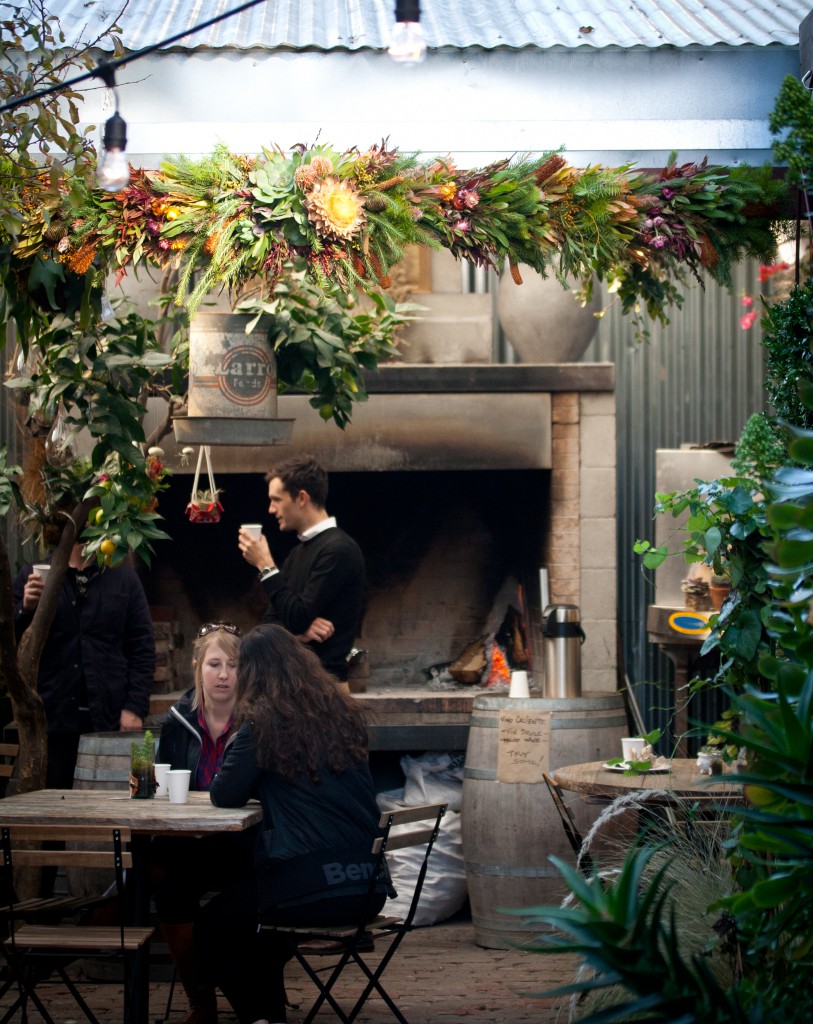
How cool is this? Coffee, brunch or lunch at Stable Cafe, amidst the lovely living garden created by Lila B. Design. (c) Sophie de Lignerolles photo
Today you can find Baylor and her team working in the welcoming open-air courtyard that’s part of Stable Cafe, the community-minded restaurant owned by her friend Thomas Lackey.
Thomas and Baylor have both been operating businesses on Folsom Street, and when Baylor lost her loading-dock studio this past June, it was Thomas who said: “Move over to our courtyard.”
He “gets” the idea of creating connections with neighbors, artists, fellow small-business owners and others who want to keep jobs and culture alive and well in San Francisco’s vibrant neighborhoods.
Plus, Stable Cafe’s kitchen makes delicious, healthy, seasonal & organic food! Now if you’re in SF, you can visit Lila B. Design, shop for flowers, plants and beautiful garden products, while also eating scrumptious food at the Stable Cafe! What’s not to love?
Baylor graciously shared these photos of her recent work for you to enjoy. Please notice the specific photo credit with each.
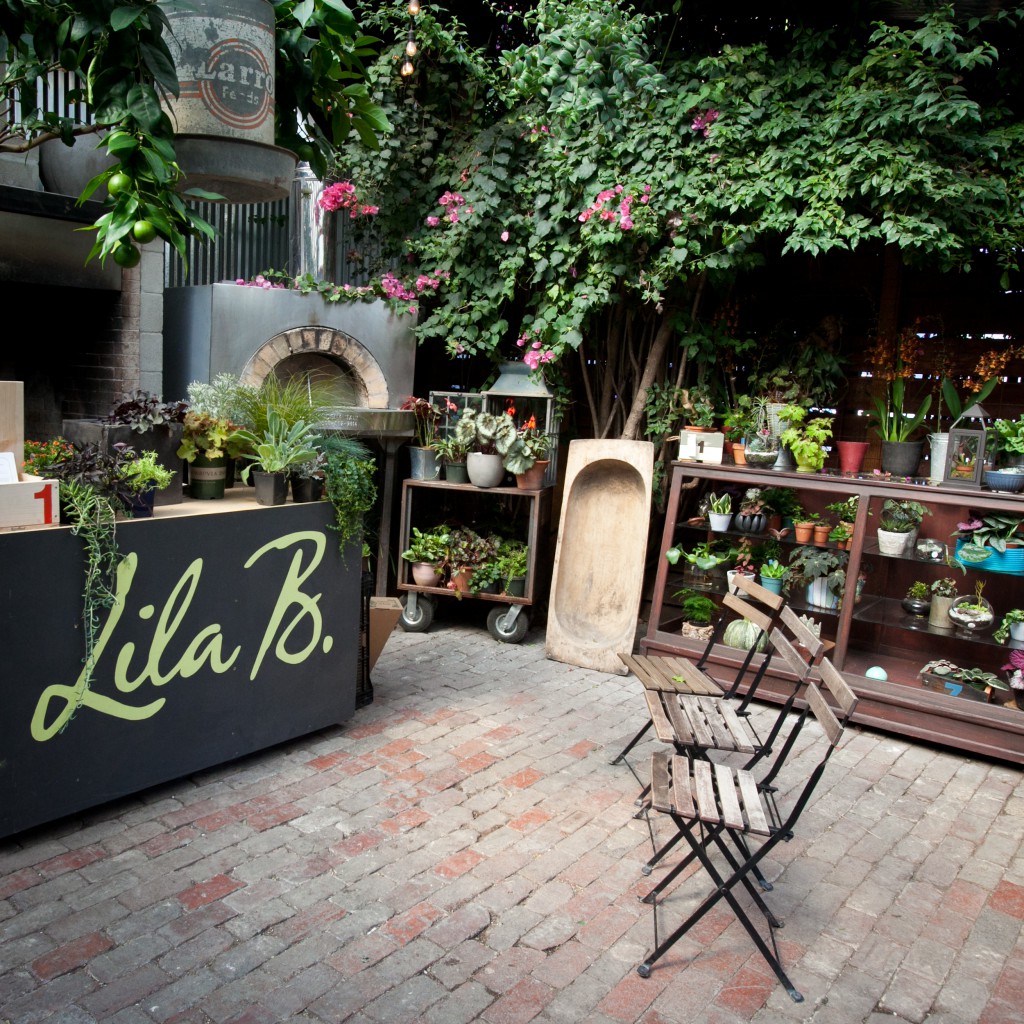
The new Lila B. Design studio at Stable Cafe, a plant-centric place for garden and flower lovers alike. (c) Sophie de Lignerolles photo
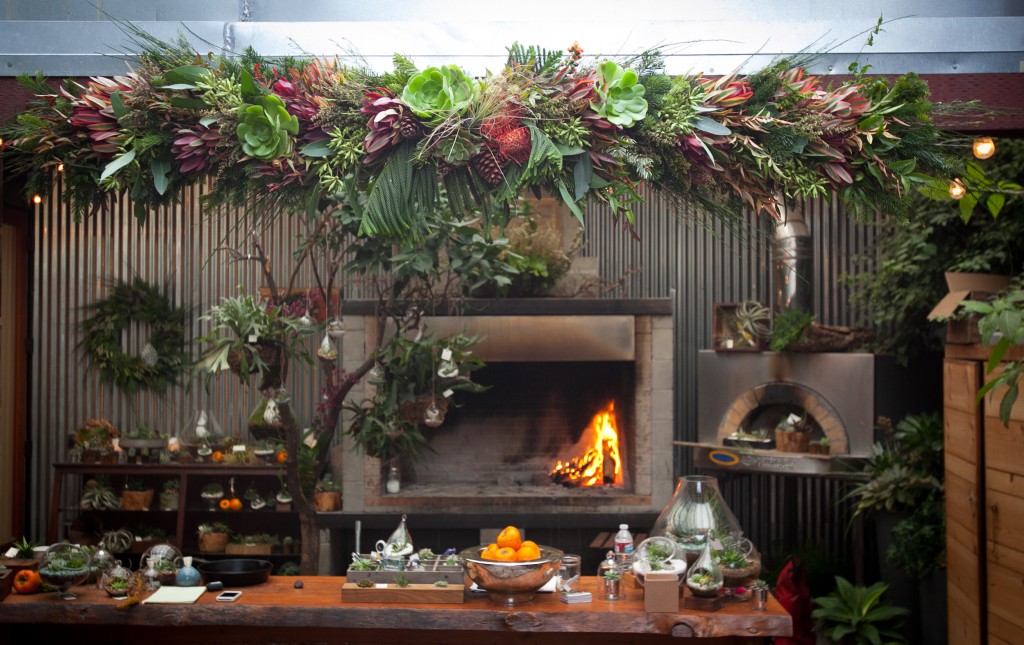
One of the event, classroom and workshop spaces at Stable Cafe, featuring a wood-burning pizza oven, a massive trestle table, and Lila B.’s garland of local flowers. (c) Sophie de Lignerolles photo
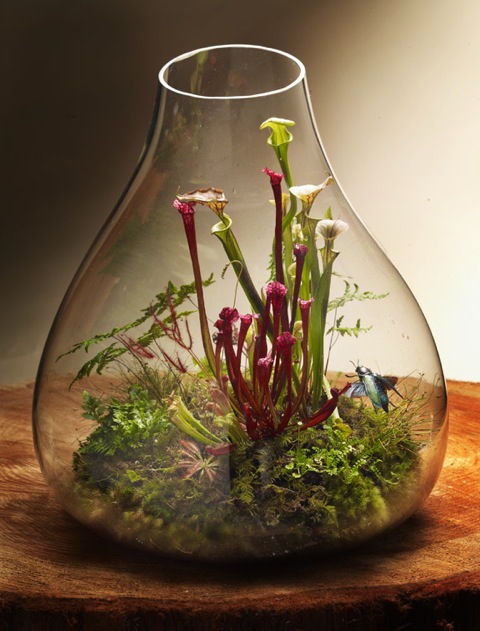
Pitcher plants (Sarracenia sp.) in a glass vessel. (c) Holly Stewart photo
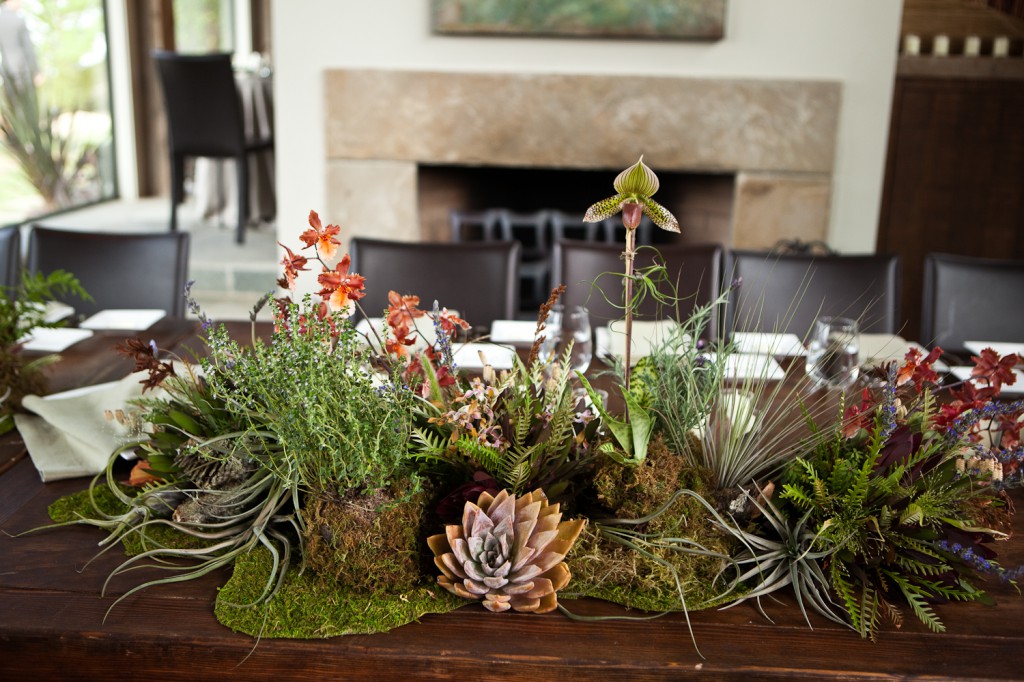
A Lila B. Design tablescape, featuring living plants. (c) Milou + Olin photo

One of Baylor’s lovely arrangements that combines locally-grown flowers, including Cafe au Lait dahlias, from Lila B.’s garden. (c) Page Bertelson photo
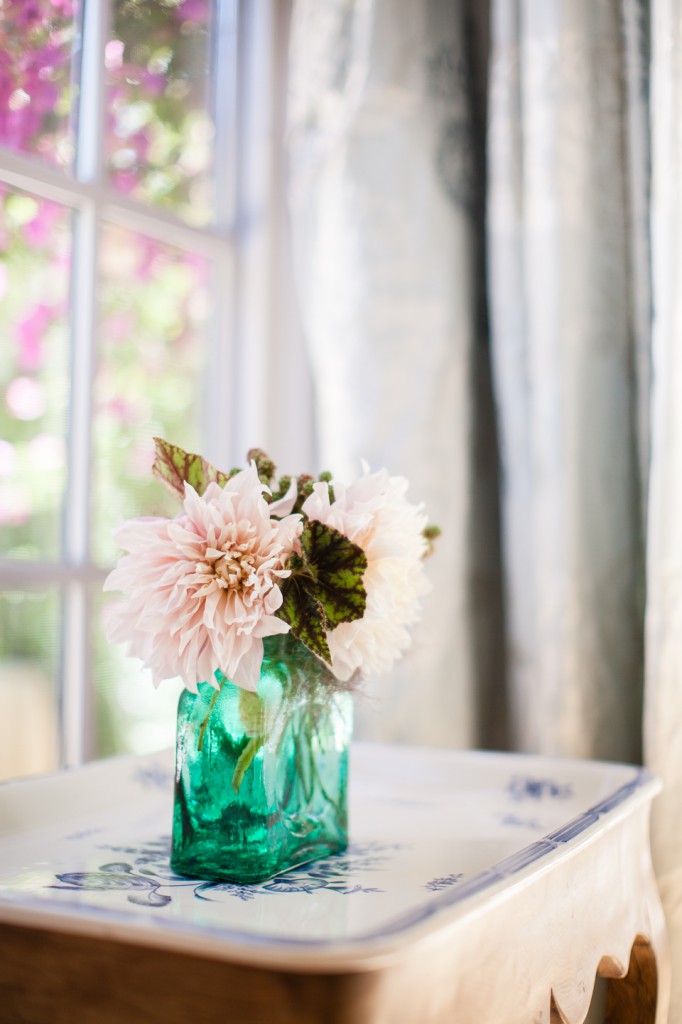
Another arrangement with begonia foliage, clipped from a living plant. (c) Page Bertelson photo
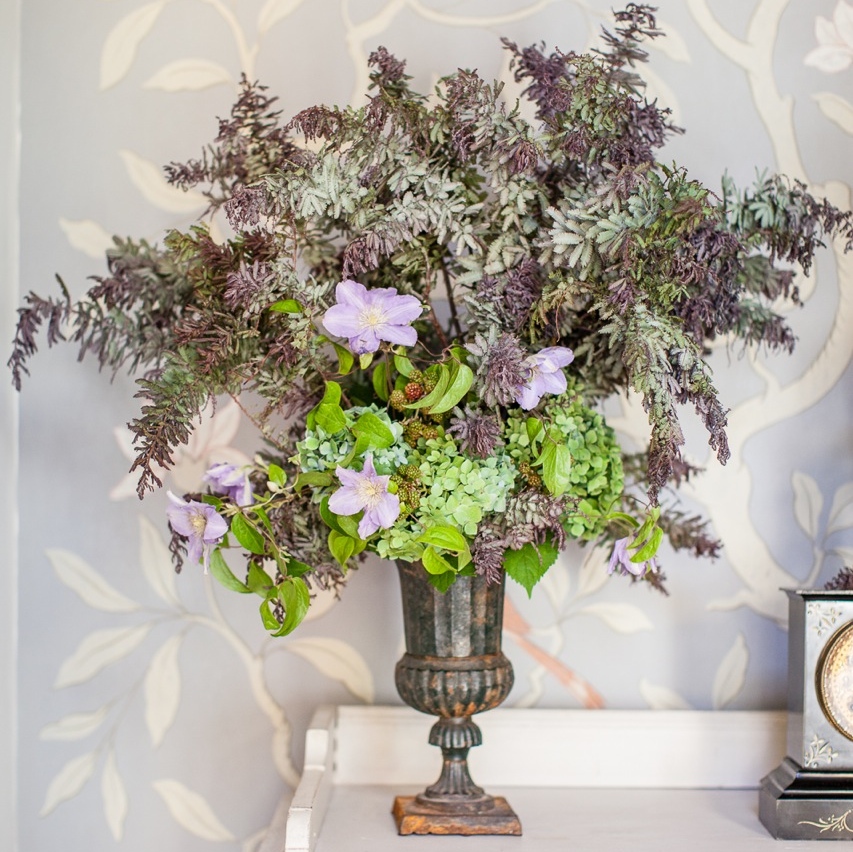
Stunning! (c) Page Bertelson photo
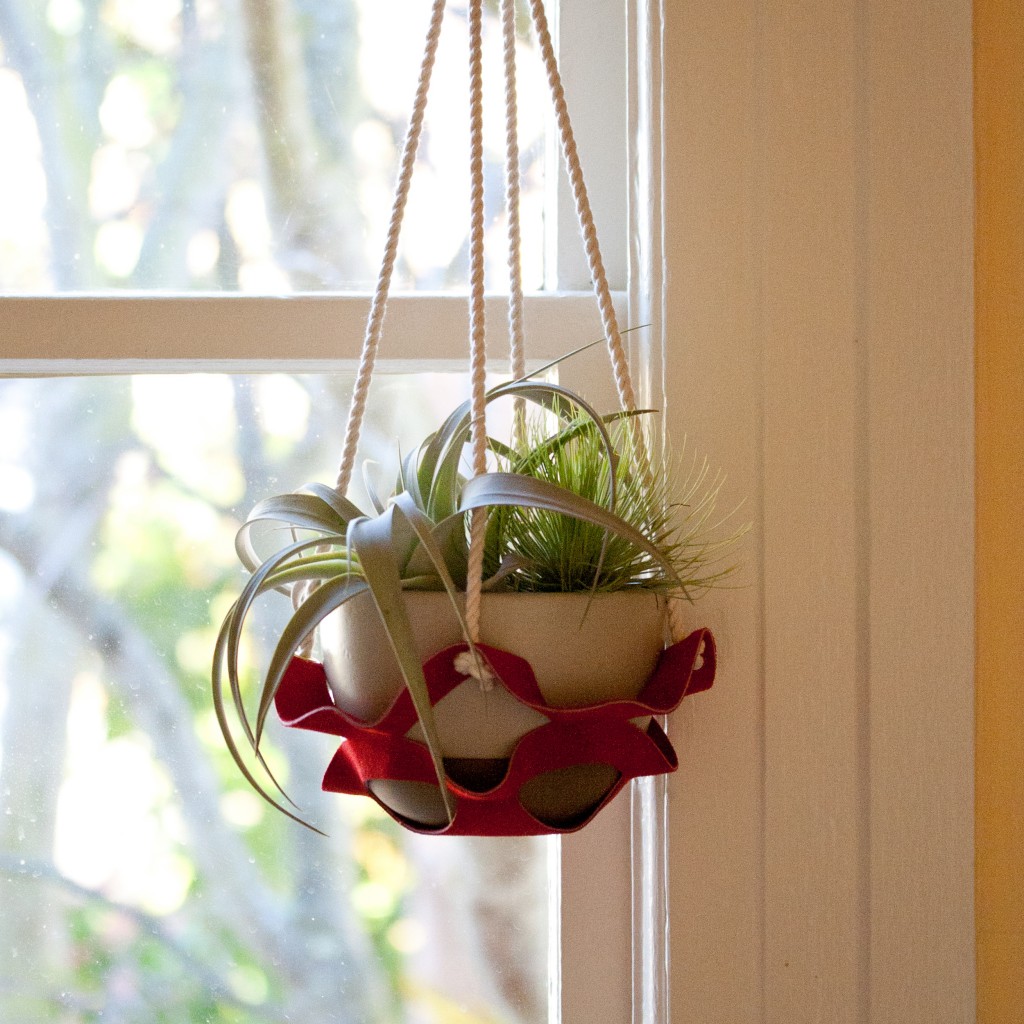
Lila B. Design’s new plant hanger – a SF-designed and fabricated product. (c) Sophie de Lignerolles photo
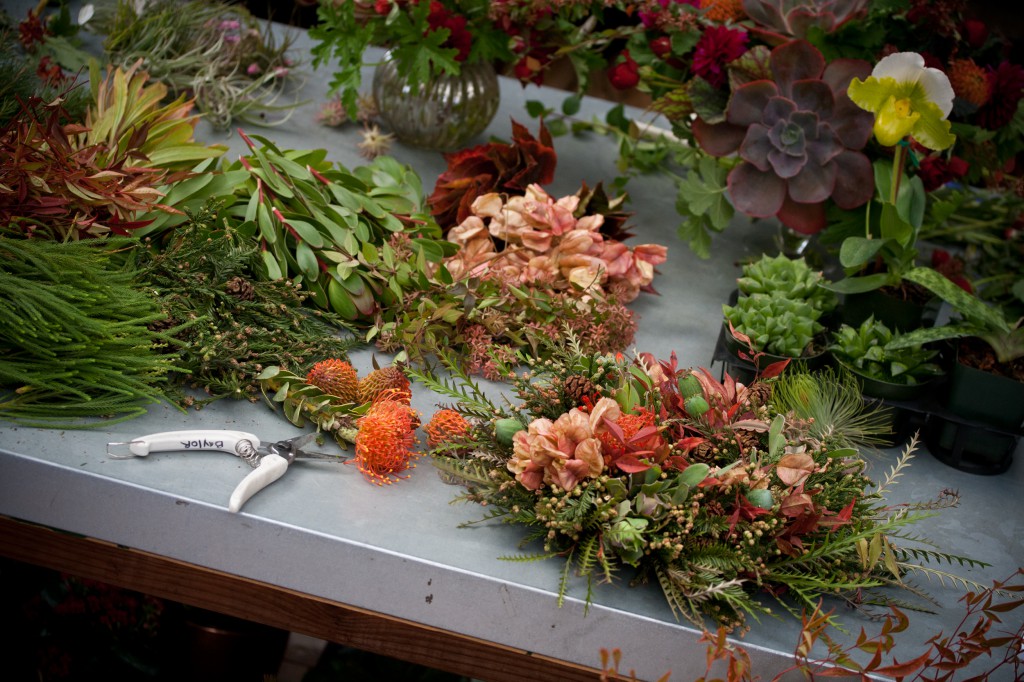
Details, details. . . a garland in the making. (c) Sophie de Lignerolles photo
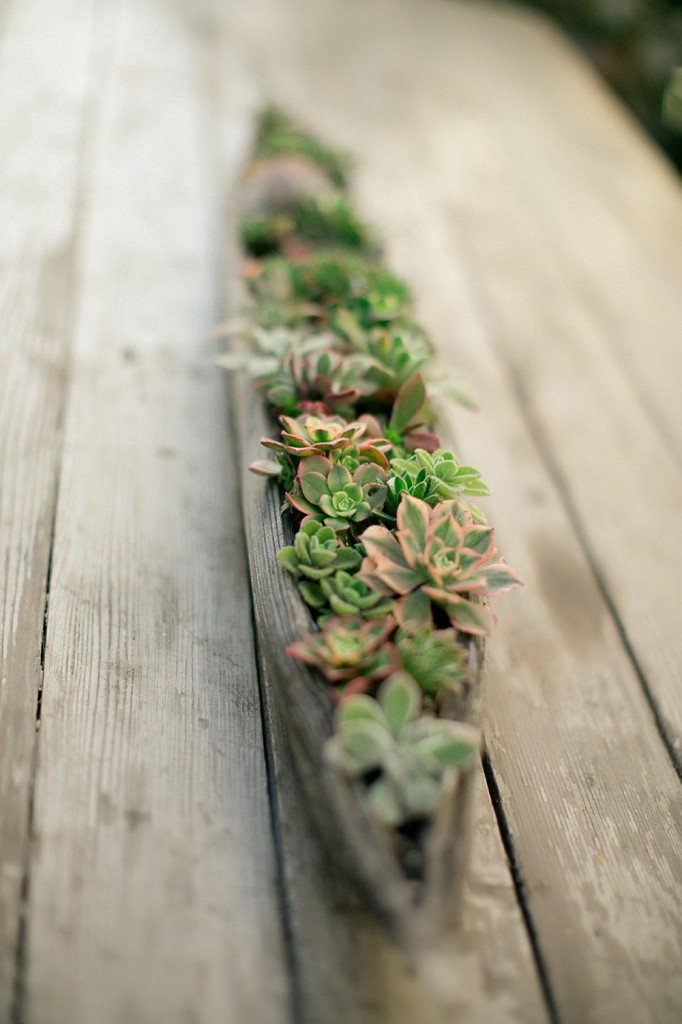
A stunning centerpiece featuring living plants in a date palm frond, created by Lila B. Design. (c) Milou + Olin photo
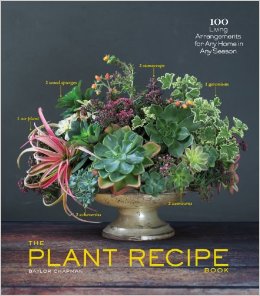
The Plant Recipe Book, out in April 2014.
Baylor has so many good things going on in her career, but the newest is The Plant Recipe Book: 100 Living Arrangements for Any Home in Any Season (Artisan Books, 2014), which will be published on April 8, 2014. This idea-filled book was photographed by Paige Green.
It contains detailed planting instructions for centerpieces and arrangements that give living plants a “starring role” in all sorts of creative vessels. A follow up to last year’s title by Jill Rizzo and Alethea Harampolis, “The Flower Recpie Book,” this new inspiring book offers more than 100 projects will blow your mind and prompt you to bring more living plants into your own design work.
If you live in or will be visiting the Bay Area, you can get a sneak peek and first dibs on a signed copy of this lovely tome. Come and hear Baylor speak at the San Francisco Flower & Garden Show, where she will demonstrate some of the book’s fun projects using living plants as floral design elements. Details here.
As I mentioned above, as soon as we met, I knew that Baylor needed to be featured in The 50 Mile Bouquet. Please enjoy the entire story:
The Accidental Flower Farmer
A patch of urban asphalt surrounded by chain link fencing and loops of barbed wire may seem unwelcoming. That is, until you peer inside to discover a designer’s bountiful cutting garden in San Francisco’s Dog Patch District.
Increasingly, there are designers who, by necessity, harvest floral ingredients from their own gardens. As well, there are growers who assume the role of floral designer, satisfying a bridal customer’s request for unique, straight-from-the-farm bouquets. That these two worlds are happily intersecting is due to curiosity, innovation and experimentation on the part of designer and grower alike.
San Francisco-based Baylor Chapman, owner of Lila B. Design, is both designer and flower farmer. She is
also a Certified San Francisco Green Business owner who bases her studio philosophy on local and sustainable design practices.
Baylor’s fashionable, 500-square-foot workshop occupies a loading dock in San Francisco’s Mission District, where she and her
assistants turn out dazzling, flower-filled vases, bowls and urns. Local and seasonal blooms are used here with abandon. How did
all of this come to be?
Early on, Baylor saw that many of her botanical design ideas couldn’t be realized because it wasn’t always easy to source ingredients locally. For her, the obvious answer was: “Why not grow those blooms myself?”
Urban Farm Scene
She first tried raising flowers on the roof of the warehouse where her street-level studio is housed. The plants took root in soil-filled milk crates lined with screening. “We had to walk up 75 steps to tend to the flowers,” Baylor recalls. Stair-climbing wasn’t the worst of it, though. All the soil and water had to be hand-carried to the roof just to keep the flowers alive.
It didn’t take long for Baylor and her staff to yearn for a ground-level gardening space. “We found an old parking lot about 1½ miles away in a neighborhood called ‘Dog Patch’ and arranged to rent part of it.” Today, the blacktop setting has a thriving crop of city-grown flowers. Perennials, annuals and vines grow in more than 100 recycled 15-gallon nursery pots, the type typically used to grow landscaping trees.
The Lila B. Lot Garden flourishes on this industrial street behind a barbed wiretopped fence. The garden’s presence beautifies the neighborhood and has attracted the interest of nearby auto body shop workers who peer admiringly through the chain link when out on their lunch breaks. “Now you see hummingbirds and bees flying around,” says the designer, her friendly face breaking into a warm smile. “The car repair guys come out and enjoy it here for lunch. It’s sort of a sanctuary.”
Her pop-up urban flower farm has helped Baylor gain credibility with clients. Now she can say: “We grew these flowers for you.” It allows her to incorporate all sorts of uncommon blooms, berries, foliage and tendrils into her designs and even custom-grow to a bride’s specifications.
Among the crops here at Lila B., you’ll find salvia, rudbeckia, gaillardia, oat grass, asters, scented geraniums, roses, lamb’s ear, sweet peas, veronica, nigella, passionflower,sea holly, cosmos, scabiosa, sunflowers, cerinthe and zinnias – as well as plants grown for their fruit and foliage. It is a mind-boggling selection of design ingredients you’d be hard pressed to find in most conventional flower shops. Sophie de Lignerolles, an artist who works for Lila B. as a designer, maintains meticulous spread sheets of the flowers they grow, including varieties grown from seeds and unusual offerings from Annie’s Annuals, a specialty and mail-order nursery in the East Bay area, a favorite with the women. “Sophie is propagating from seed now, which I think is pretty fabulous,” Baylor says. That means an even greater variety of floral bounty for Lila B.’s customers.
A Greener Approach
Baylor is well equipped to grow her own unique floral choices, thanks to her landscape design studies. After earning a garden design certificate from University of California at Berkeley Extension, she spent time on the crew of a Bay Area estate garden whose owners valued organic practices and requested that flowers from the grounds would be used for interior bouquets. Baylor soon found herself creating these arrangements. Her interest in floral design lured her into more creative gigs, including freelancing for other studios and shops.
In 2007, Baylor opened Lila B., named after her grandmother. At first, she worked out of the loft where she lives. After one year of literally living with her flowers, she moved her studio across the street to another warehouse. Formerly a commercial laundry, it now houses 60 art studios in an environment that fosters creativity and experimentation. Baylor’s tiny workshop was once a warehouse loading dock, so it faces the street and has a huge, roll-up door that brings light and fresh air inside. While not a retail store, the street-front presence wows pedestrians with glimpses of huge arrangements inside – and high above the roll-up door at the front: a trio of frames planted with a living tapestry of succulents.
Thanks to Northern California’s temperate environment, Baylor enjoys an excellent, almost year-round source of flowers from her suppliers. Besides her own Lila B. homegrown flowers, she takes advantage of San Francisco’s wholesale flower market where many California growers bring their crops to sell. A few “weird and wonderful” suppliers are favorites, including two sisters who run a company called Florist at Large. They stock foraged goodies such as fruit, branches and wild ingredients coveted by designers who want a natural look. “I want people to be curious,” says Baylor. “I want my bouquets to be beautiful to the eye, but they should also prompt the question: ‘What is that? Where does it grow? Can you eat it?’”
We visited Baylor at the peak of summer when she and Anna Hoffmann, a designer who occasionally freelances for her, were creating flowers for a peach-and-ivory-themed wedding – using a combination of tawny ‘Cafe au Lait’ dahlias, blush-pink garden roses, the silvery foliage of Dusty Miller and lamb’s ears, fluffy ornamental grasses, flowering sprigs from a mock orange tree and honeysuckle vines.
As Baylor assembled the groomsmen’s boutonnieres with scented geranium foliage and seed heads from the pincushion flowers growing in her Lot Garden, she paused to admire her creation: “Even though flowers are ephemeral, I treat floral design like I do garden design. I think of each arrangement as a mini garden, with its own texture, scale and color palette. They’re little masterpieces.”
Baylor’s bouquets embody both her artistic sensibility and her profound admiration for the plant world’s infinite variety of color, form and texture. “I hope that people are drawn to me because of what I’m doing and what I’m interested in doing,” she says, “because I feel very blessed.”
This entry was posted
on Wednesday, January 22nd, 2014 at 7:38 am and is filed under American Grown, Blog Posts, Book reviews, Creativity, floral design, Gardening, General, Plants, Podcast Episodes, SLOW FLOWERS Podcast, Writing.
You can follow any responses to this entry through the RSS 2.0 feed.
You can leave a response, or trackback from your own site.






















January 23rd, 2014 at 1:40 pm
Ooooh lalalaaah! Gorgeous work!